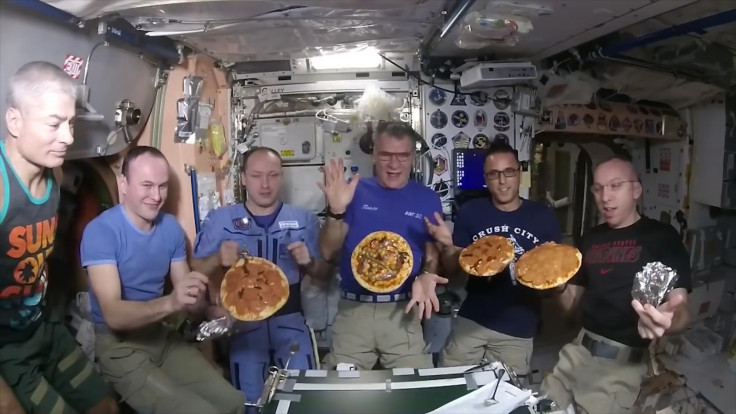Astronauts don't eat enough because food floats in their stomachs
Poor appetites in space first blamed on space motion sickness
New theories on why astronauts eat less and lose weight in space have been revealed by Nasa.
The weight-loss happens within 24 hours of launch and astronauts can lose up to 6lbs in orbit. It has been long assumed that astronauts were eating up to 70% less in space than they would on Earth because of space motion sickness.
The head of Nasa's nutritional biochemistry lab, Dr Scott Smith, told Popular Science that getting astronauts to eat enough was one of the agency's main concerns.
In a new take on the cause for their reduced diet, Smith said astronauts eat less because they feel full and their bodies think they are getting enough food.
Smith thinks the crew gets the impression they are eating enough because food is processed differently in space than it is on Earth. In space, food floats in astronauts' stomachs.
"Food doesn't settle the same way it does on Earth so that the stretching of your stomach – which sends the signal to your brain to say 'you're full, stop eating' – gets triggered faster in weightlessness than it does on Earth," he said.
Health implications
For a long time weight-loss was seen as one of the side effects of space travel: you just had to get used to it. But Smith said that maintaining weight was an important issue for all astronauts.
"As odd as it sounds, that's one of the bigger challenges we have: getting crews to eat enough calories to maintain body weight," he said.
Losing body mass as fast as astronauts do in space has terrible effects on their health. "Your cardiovascular system doesn't do well, oxidative damage goes up," Smith said. Some astronauts came back from missions 10% lighter and in bad shape.
Astronauts aboard the International Space Station usually exercise for two hours a day, six days a week to maintain their muscle mass. If they don't, their muscles grow weak. That is the reason there is a treadmill and a weight machine on board.
But a healthy, well thought-out diet and encouragement to keep eating when feeling full helps astronauts maintain their weight.
One solution is to feed them fish: "Crew members that eat more fish lose less bone," Smith said. "We maintain that omega-3 fatty acids are protective of bone health in astronauts."























